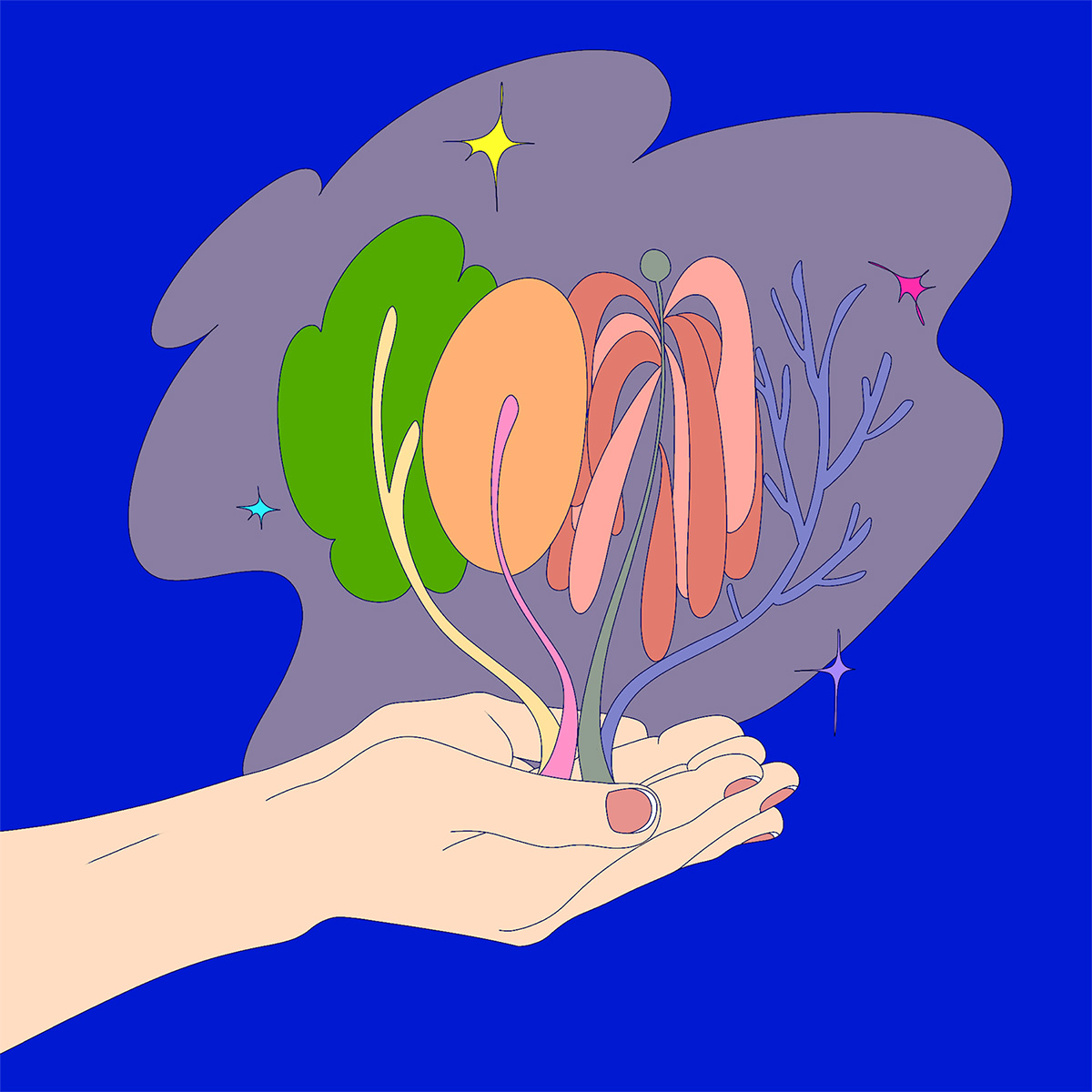Regardless, people tend to separate themselves from nature. At one pole, we have nature, living a life of its own. Opposed to it, there is the human being—a bystander, or, at worst, an active destroyer. Meanwhile, we are nature, too. We are a part of it. From this point of view, anything we do becomes a part of nature as well.
There you are, just looking at the road, and you see a swarm of ants carrying a piece of sandwich that someone dropped. Next to it, a blade of grass has made its way through the concrete, and the tiny plant is even about to bloom. No matter what you do, nature will have its way, because the natural world and the technology-filled human world, with its microchip-like cities, are inseparable. Sometimes we just don’t notice how the extremely urbanized world we live in is still permeated by nature—with sand from the desert landing on our windowsills, bugs mistaking flowers on our screens for real ones, the rain pouring on our cars, the wind helping us generate the energy to charge our gadgets, etc.
My ancestors were nomads. They believed in Tengri, the god of the sky, and in Umai, the mother of all people and the goddess of the earth. They worshiped the forces of nature while existing in harmony with the surrounding world . . . They lived in yurts—circular dwellings made from felt, easily portable as their owners followed the breath of the earth. From within those yurts, the sky was visible through a shanyrak—a latticed circular opening in the ceiling. Today, spiritual retreats all over the world provide their guests with accommodation in yurts, making it easier to merge with nature for those used to smart apartments equipped with Wi-Fi and a virtual assistant.
I can feel that the spirit of nomadic people, their urge to travel and move over land, as well as their appreciation of freedom, were all passed on to me.
To me, nature means God, freedom, infinity.
*
My family has always been connected to nature. My great-grandfather planted an oasis of fruit trees amidst the bare, severely arid steppe for long-distance travelers to rest in. My grandmother befriended a huge wild owl who made himself at home in the attic of her rural cottage, returning there every morning from his nighttime hunts. She also knew how to talk to the wind. Inspired by her personality and story, I wrote one of my poems, “At the edge of the village a woman in a stupa ground millet . . . ” According to another family story, my dad picked up some acorns off the streets of Kyiv, brought them to his homeland and planted the first oaks in a land where they had never grown before. Today, many oak trees grow in that area, all of them descendants of those original ones. My mom knows how to negotiate with plants to encourage them to blossom or give fruit, and I made a dedication to this in one of my poems as well. Still, all of these are just a part of what my family has taught me.
Last year at the International Poetry Festival in Rotterdam, as I was standing on stage after a poetry reading, facing a darkened auditorium filled with the quiet breathing of several hundred listeners, the host of the event asked me: “How, just how do you see the world like that? It feels as if it is alive, everything in your poetry seems to be alive and talking to you and your readers. As for me, I just don’t notice all of those things, I don’t see those little creatures that I got to be aware of through your poetry.” I was very surprised to hear that. How can someone not see them?
To me, the entire world is alive and undivided. I enjoy observing it and interacting with it. If you were to think of the higher matters, God would mean the world, the universe, everything that exists. In other words, you could say that nature is God, or the higher intelligence, whichever you prefer. I remember one journey to Tibet where I experienced altitude sickness firsthand. Our destination was the high-altitude mountain lake Namtso. According to local belief, that was where the god Tengri dove. Our guides, fearing that someone would unknowingly desecrate their sacred lake, told us the story of a tourist who washed his socks in the lake and died on the spot. Whether this is true, and what exactly happened to the man who washed his weary socks in the sacred icy water at an altitude of about five thousand meters, is unknown. To me, Tengri, the sky, and nature itself are not something that can punish you for washing socks or overeating cakes, but a huge field of energy we are all just a part of.
We are submerged in nature, and yet we are trying to eradicate it within ourselves. Notably, another meaning of the word “nature” is the truth, the essence of things, the authenticity. We say “it’s human nature” when we mean something that makes us human. So, the further away we get from nature, the further away we get from ourselves. The closer to nature, the closer to ourselves. In any case, even if we shut ourselves off from it by embracing the concrete world and the plastic jungle where everything is a substitute, sooner or later we will return to nature, even if it means dissolving into it at the end of our life journey.

